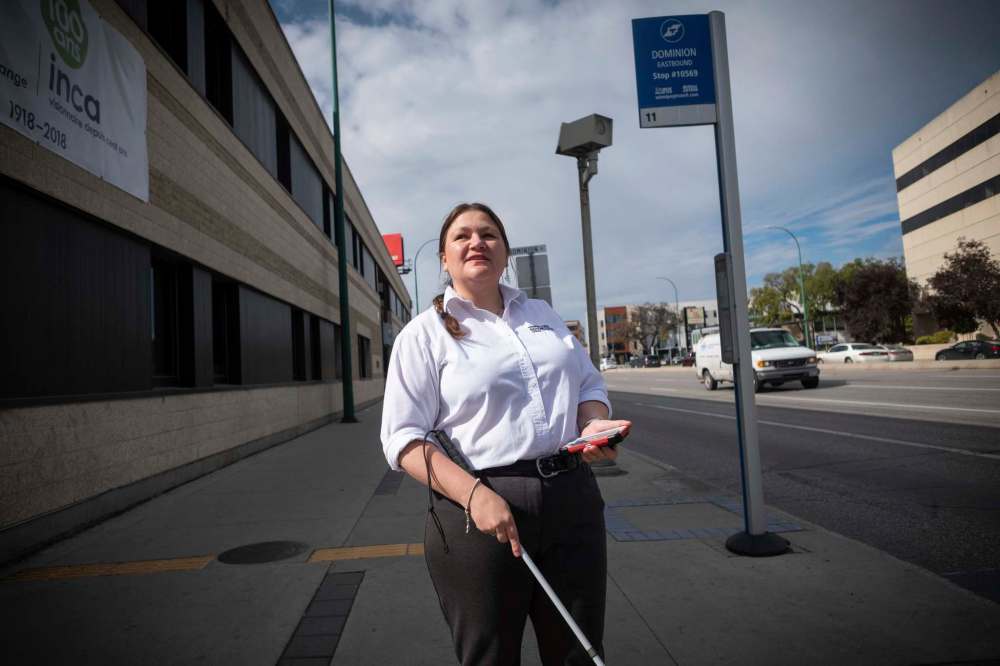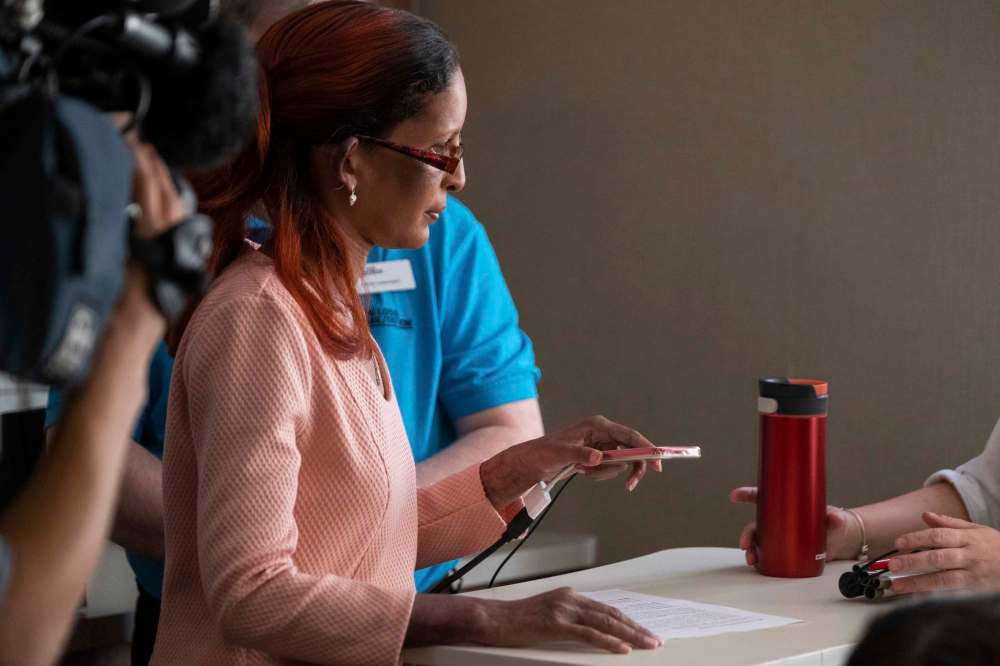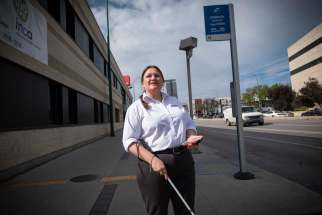New apps help visually impaired navigate surroundings CNIB seeks donations of used smartphones, tablets
Read this article for free:
or
Already have an account? Log in here »
To continue reading, please subscribe:
Monthly Digital Subscription
$0 for the first 4 weeks*
- Enjoy unlimited reading on winnipegfreepress.com
- Read the E-Edition, our digital replica newspaper
- Access News Break, our award-winning app
- Play interactive puzzles
*No charge for 4 weeks then price increases to the regular rate of $19.00 plus GST every four weeks. Offer available to new and qualified returning subscribers only. Cancel any time.
Monthly Digital Subscription
$4.75/week*
- Enjoy unlimited reading on winnipegfreepress.com
- Read the E-Edition, our digital replica newspaper
- Access News Break, our award-winning app
- Play interactive puzzles
*Billed as $19 plus GST every four weeks. Cancel any time.
To continue reading, please subscribe:
Add Free Press access to your Brandon Sun subscription for only an additional
$1 for the first 4 weeks*
*Your next subscription payment will increase by $1.00 and you will be charged $16.99 plus GST for four weeks. After four weeks, your payment will increase to $23.99 plus GST every four weeks.
Read unlimited articles for free today:
or
Already have an account? Log in here »
Hey there, time traveller!
This article was published 19/09/2018 (2641 days ago), so information in it may no longer be current.
The Canadian National Institute for the Blind in Winnipeg wants your old smartphones as part of a new program to put devices loaded with helpful apps into the hands of sight-impaired Canadians.
Phone it Forward is a campaign to collect used smartphones and tablets. They will clean and repurpose the phones so thousands of Canadians can navigate the world around them more easily.
The national charity, the oldest in Canada for the blind, has partnered with a private tech company to do the work.

Recipients of the phones will also receive technical training, discounted maintenance and a data support plan.
Donors, from individuals to corporations, will get tax receipts.
“This is a very simple concept, a straight-forward approach to get technology into the hands of people who need it,” said CNIB Winnipeg executive director Garry Nenson at a press conference Wednesday to unveil the new program.
Apps include portable scanners to magnify small print, or to make it possible to do online banking using voice-activated technology.
Much of the technology already exists, it’s just a matter of training users to get the most out of it.
Brianna Fuellbrandt, a CNIB vision rehabilitation specialist, demonstrated the existing Key2Access app which amplifies voice-activated traffic lights to cross streets safely.
So far only two Winnipeg intersections — Dominion Street at Portage Avenue and Arlington Street at Portage Avenue — have lights that can key into the app. CNIB is in talks with the city to expand the use to other intersections.
“Anybody can get the app. You can download it on your phone and it’s free. It activates the volume on the button on the light (standard) so the countdown is audible,” Fuellbrandt said.
Apps will also warn people about obstacles, such as construction.

CNIB is in talks with a national retailer to act as a depot for donations. In the meantime, individuals and companies are asked to register their old smartphones online at phoneitforward.ca, pick up a prepaid envelope and either send in or drop off their old phones at a local CNIB office. The charitable agency will mail back a tax receipt.
“This is a great program. It’s got the potential to get all those phones out of desk drawers,” said Glenn Hildebrand, who sits on the national board for CNIB’s Vision Loss Rehabilitation Canada. He handed in two iPhone 5s at the event.
The program was inspired by CNIB’s new strategic plan, which also refreshed the old brand with a new name unveiled on Wednesday. CNIB is now CNIB Foundation to emphasize that it relies on charitable donations to fund services.
A total of 500,000 Canadians have some form of sight impairment and an estimated six million Canadians have an eye disease, which left untreated, can lead to blindness.
Unemployment among the blind is three times the national average, and 46 per cent of CNIB clients don’t have smartphones, compared with 24 per cent of Canadians.
alexandra.paul@freepress.mb.ca










